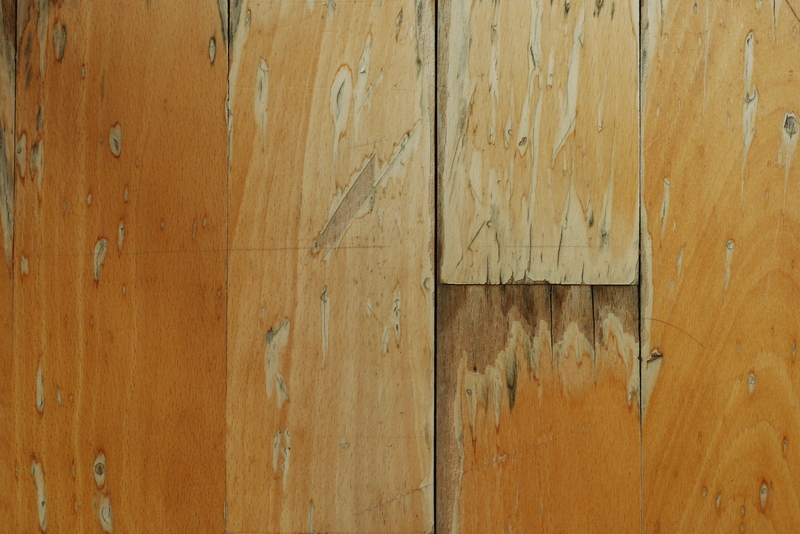Comprehensive Cleaning for All Floors
Posted on 18/08/2025
Comprehensive Cleaning for All Floors: The Complete Guide
Keeping your floors immaculate is vital not only for aesthetics but also for prolonging their lifespan and enhancing indoor air quality. Whether you have hardwood, tile, carpet, vinyl, laminate, or natural stone surfaces, comprehensive floor cleaning is essential for a healthy and welcoming home. This article provides a detailed, expert-approved guide to floor cleaning techniques, best products, and maintenance tips tailored to each type of flooring. Discover the ultimate strategies for effective floor care and create spotless surfaces throughout your space.
Why Comprehensive Cleaning for All Floors Matters
Floors withstand the brunt of daily life: foot traffic, spills, pet accidents, and grime. Regular but proper floor maintenance not only keeps them looking new but also prevents damage that could lead to costly repairs. A thorough floor cleaning strategy contributes significantly to:
- Better indoor air quality: Removing allergens, dust, and bacteria.
- Healthier living environment: Preventing the buildup of germs and pests.
- Increased property value: Well-maintained floors are a big selling point.
- Extended floor lifespan: Proper cleaning prevents scratches, stains, and wear.
- Overall aesthetics: Clean floors enhance the brightness and beauty of any room.

Understanding Different Flooring Types & Their Needs
Each floor type requires unique care. Let's break down the specifics for the most popular floor surfaces:
Cleaning & Maintenance for Hardwood Floors
Hardwood floors are timeless and elegant but can suffer from moisture and scratches. Here's how to master complete hardwood floor cleaning:
- Daily dusting: Use a microfiber mop or dry dusting cloth to pick up debris.
- Weekly cleaning: Mop with a damp (not wet) microfiber mop and a pH-neutral wood floor cleaner.
- Spot-treat stains: Gently buff with a damp cloth; avoid harsh chemicals.
- Prevent scratches: Place felt pads under furniture and remove shoes indoors.
- Avoid excess water: Never saturate hardwood. Water can cause warping and damage.
Pro-tip: Refinish your floors every few years for long-term brilliance and durability.
Best Practices for Tile Floor Cleaning
Tiles, whether ceramic, porcelain, or natural stone, offer durability and easy cleaning but can collect grime in the grout lines. For comprehensive tile floor care:
- Sweep or vacuum daily to remove surface dirt and prevent scratches.
- Mop weekly with warm water and a tile-safe cleaner.
- Scrub grout lines regularly. Use a baking soda paste and a stiff-bristled brush for deep cleaning.
- Avoid acidic cleaners (especially on stone tile).
By incorporating a thorough cleaning routine, you'll keep tiles glossy and grout fresh.
Vinyl Floor Cleaning: Dos and Don'ts
Vinyl flooring is popular for its affordability and easy maintenance. For total vinyl floor care:
- Sweep or vacuum daily to clear dust and debris.
- Mop with a mild cleaner weekly. Avoid abrasive brushes and harsh chemicals.
- Wipe up spills immediately. Liquids seeping into seams can cause peeling or warping.
- Protect from sunlight. Use blinds or curtains to avoid fading.
Choose non-abrasive tools to maintain vinyl's smooth look and durability.
Laminate Floor Care: Keeping Things Spotless
Laminate floors combine the aesthetics of wood with easier maintenance. For efficient laminate floor cleaning:
- Sweep or vacuum with a soft brush attachment.
- Mop with a slightly damp cloth -- excess water can seep in and cause swelling.
- Clean up spills fast. Blot, don't rub!
- Avoid steam mops and polishers. These can harm the finish.
Maintain the shine and structure by following the manufacturer's care suggestions.
Carpet Cleaning: Techniques for Fresh, Allergy-Free Floors
Carpets trap dust, allergens, and odors. A deep-clean routine is key for a healthy home.
- Vacuum at least twice a week. Use a HEPA filter for improved air quality.
- Spot-clean stains promptly with the right carpet solution.
- Deep-clean carpets every 6-12 months. Use a steam cleaner or hire professionals.
- Rotate furniture and use area rugs to minimize wear.
For comprehensive carpet care, don't neglect regular professional cleaning for high-traffic areas.
Natural Stone Floor Cleaning: Caring for Marble, Granite, and Slate
Stone floors are elegant but sensitive to acidic and abrasive cleaners. To maintain natural stone floors:
- Sweep daily to remove grit that can scratch stone.
- Mop with a pH-neutral stone cleaner. Avoid vinegar, lemon, or anything acidic.
- Seal your stone floors regularly to prevent staining and dullness.
- Address spills immediately. Some liquids can stain stone permanently.
Protect the natural finish through consistent, gentle cleaning routines.
Essential Tools & Products for Total Floor Cleaning
Investing in the right supplies can make a world of difference in your cleaning results. Make sure you have the following essentials for a thorough floor cleaning routine:
- Microfiber mops and cloths: Suitable for nearly all surfaces.
- pH-neutral cleaners: Especially important for wood and stone.
- Soft-bristled brooms: Prevent scratching on delicate floors.
- Wet/dry vacuum: Great for hardwood, tile, and even carpets.
- Scrub brushes: For grout, corners, and stubborn stains.
- Protective pads: Use under furniture to prevent scratches.
- Doormats: Trap dirt at entryways and reduce indoor mess.
For stubborn stains or special floor types, choose products specifically designed for that material to avoid damage or dulling.
Eco-Friendly Approaches for Safe & Healthy Floors
Green cleaning is not only safe for your family and pets but also for the environment. Here's how you can practice sustainable floor cleaning:
- Opt for biodegradable or plant-based cleaners.
- Use steam or water-based cleaning methods instead of harsh chemicals, where appropriate.
- DIY solutions: For tiles and vinyl, a mix of water, vinegar, and a few drops of mild soap can be very effective (avoid vinegar on wood and stone).
- Avoid disposable wipes; choose washable cloths and mop pads.
Proper ventilation during and after cleaning will also help protect indoor air quality.
Best Practices: Maintaining Floor Cleanliness Year-Round
To achieve always spotless floors, consistency is key. Here are expert strategies to maintain every type of surface:
- Sweep/vacuum daily, mop weekly: Adapt frequency to the room's usage.
- Address spills and stains immediately: Quick reaction prevents permanent damage.
- Rotate area rugs and furniture: Distributes wear evenly across the surface.
- Use entry mats: Keep outside dirt from getting onto your floors.
- Schedule a seasonal deep clean: Especially after winter or before guests arrive.
For long-lasting, clean floors, combine daily habits with scheduled deep cleaning for best results.
Common Cleaning Mistakes to Avoid
Even the best intentions can lead to damaged floors if you're not careful. Avoid these mistakes:
- Using too much water on wood or laminate floors.
- Applying harsh chemicals on natural stone.
- Neglecting to rinse mop heads and cloths regularly.
- Ignoring manufacturer care guidelines.
- Letting dirt and grime build up before cleaning.
Professional Cleaning vs. DIY: Which Is Best?
For most residential comprehensive floor cleaning, weekly DIY routines suffice. However, some circumstances call for the expertise of professional cleaners:
- Hard-to-remove stains or odors on carpet
- Specialty stone polishing and sealing
- Extensive tile grout cleaning
- Annual deep-cleans for high-traffic commercial spaces
Professionals offer access to industrial machines and techniques that provide a deeper, more thorough clean than home equipment might achieve. Regular professional service, at least annually, can extend the life and beauty of your floors.

Frequently Asked Questions About Floor Cleaning
How often should I clean my floors?
Frequency depends on type and traffic. As a rule of thumb:
- Hard Floors (wood, vinyl, laminate, tile): Sweep or vacuum daily, mop weekly.
- Carpets: Vacuum twice a week, deep clean twice a year.
- Natural Stone: Sweep daily, mop weekly, reseal annually.
Can I use the same cleaner on all floors?
No. Always use products formulated for your specific floor type. For example, vinegar can dull stone, and too much water can damage wood.
Is vacuuming safe for hardwood and tile floors?
Yes, as long as you use a soft-bristle or hard-floor specific vacuum head. Avoid beater bars, which can scratch sensitive surfaces.
What's the best way to keep grout clean?
Regular scrubbing with a baking soda paste and sealing grout annually will prevent staining and mildew growth.
Conclusion: Mastering Comprehensive Floor Cleaning
Comprehensive cleaning for all floors isn't just about appearance -- it's about protecting your investment, promoting health, and enjoying your space to its fullest. With proper techniques, right tools, and regular routines, you can maintain spotless, gleaming surfaces no matter the floor type.
Remember: each floor has unique needs. From hardwood's sensitivity to moisture to the grout care required for tile and the importance of vacuuming for carpets, customizing your approach is the secret to success. Whether you DIY or call in the pros, a consistent plan ensures your home or business remains beautiful, safe, and welcoming.
- Prioritize daily tidying
- Deep-clean seasonally
- Follow material-specific guidelines
- Choose eco-friendly solutions
For those searching for how to clean every floor type, bookmarking this guide guarantees that you'll always have a practical, up-to-date resource for sparkling, well-maintained floors.
Latest Posts
Top Strategies for Tenants' End of Tenancy House Cleaning
Create a Pet Odor-Free Sanctuary in Your Home
Maximize Your Living Comfort with a Dust-Free Home
Conquer Grease: The Simplest Techniques for Enamel Oven Tray Cleaning
Declutter and Sparkle: Unveil Your Home's Potential with Our Checklist




